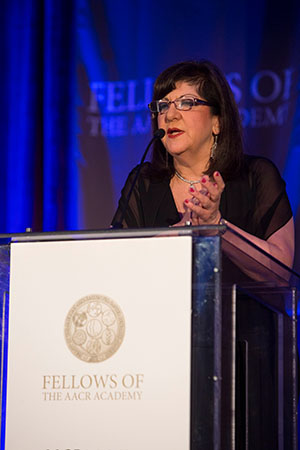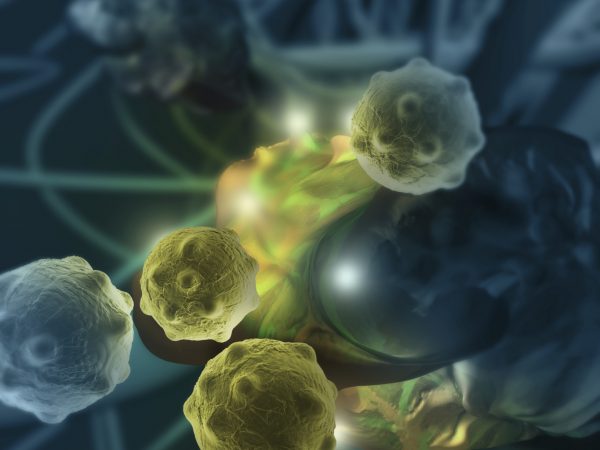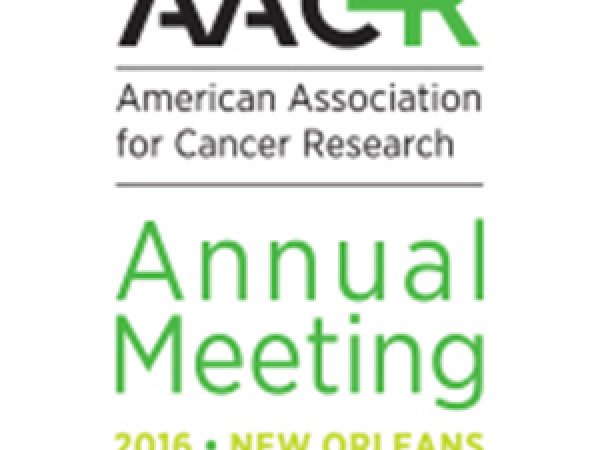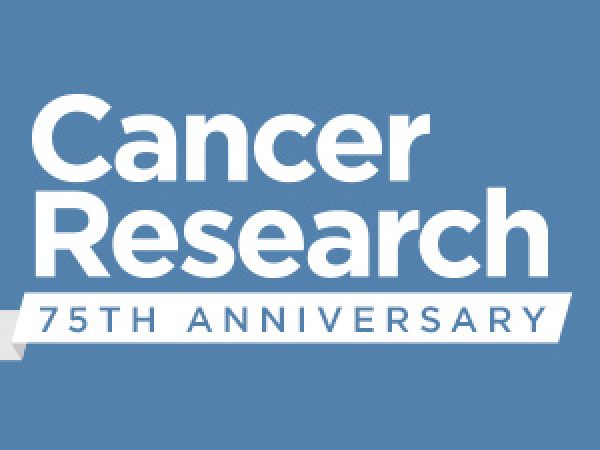Newly Elected 2016 Class of Fellows Join Prestigious AACR Academy
This year marks the fourth year that AACR will be inducting newly elected Fellows into its AACR Academy. The 2016 class of 11 Fellows will be celebrated and formally inducted at a special evening ceremony to be held on the eve of the AACR Annual Meeting 2016, scheduled for April 16-20, 2016, in New Orleans, Louisiana.

AACR CEO Margaret Foti, PhD, MD (hc), speaks at the induction of the Fellows of the AACR Academy at the AACR Annual Meeting 2015. Photo by © AACR/Todd Buchanan 2015.
The AACR Academy was created in 2013 with the main purpose of serving as a means to recognize and honor distinguished scientists whose major scientific contributions have propelled significant innovation and progress against cancer. Each Fellow inducted into the AACR Academy is nominated and elected through a rigorous process conducted by existing Fellows of the AACR Academy. This multi-step, peer-review process involves a comprehensive assessment of each candidate, their collective scientific achievements in cancer research and cancer-related biomedical science, and evaluation of how such achievements have impacted worldwide cancer research efforts. Only individuals whose work has had a significant and long-lasting impact on the field are eligible to stand for election as a Fellow of the AACR Academy.
Annually, eleven individuals are voted into the AACR Academy in honor of the eleven scientists and physicians who founded the AACR in 1907. These newly elected Fellows, upon joining the brain trust of global leaders in cancer research already in the AACR Academy, are periodically requested to provide expert insight and guidance to the AACR as the organization continues to pursue its mission to prevent and cure all cancers. This expert advice is subsequently utilized to help shape future programs and initiatives of the organization.
This year’s newly elected Fellows of the AACR Academy include:
- Bruce M. Alberts, PhD, Chancellor’s Leadership Chair in Biochemistry and Biophysics for Science and Education, University of California, San Francisco, California;
For contributions to characterizing the molecular and biochemical underpinnings of DNA replication
- Clara D. Bloomfield, MD, Distinguished University Professor; William G. Pace III Professor of Cancer Research; Cancer Scholar and Senior Advisor, The Ohio State University Comprehensive Cancer Center, James Cancer Hospital and Solove Research Institute, Columbus, Ohio;
For research devoted to defining the chromosomal abnormalities that contribute to hematologic malignancies
- Thomas R. Cech, PhD, Distinguished Professor of Chemistry and Biochemistry; Director, BioFrontiers Institute, University of Colorado, Boulder, Colorado;
For contributions to the discoveries of the catalytic properties of RNA and of the catalytic subunit of telomerase, telomerase reverse transcriptase
- John E. Dick, PhD, Canada Research Chair in Stem Cell Biology and Senior Scientist, Princess Margaret Cancer Centre and McEwen Centre for Regenerative Medicine, University Health Network; Director, Program in Cancer Stem Cells, Ontario Institute for Cancer Research; Professor, Department of Molecular Genetics, University of Toronto; Toronto, Ontario, Canada;
For the discovery and characterization of normal hematopoietic stem cells isolated from both bone marrow and umbilical cord blood and leukemic stem cells from acute myeloid leukemia patients
- Joe W. Gray, PhD, Gordon Moore Endowed Chair, Department of Biomedical Engineering; Director, Center for Spatial Systems Biomedicine; Associate Director for Biophysical Oncology, Knight Cancer Institute, Oregon Health & Science University, Portland, Oregon;
For developing technologies that have transformed the study and understanding of the genetic alterations that contribute to cancer
- Rudolf Jaenisch, MD, Founding Member and Professor, Whitehead Institute for Biomedical Research; Professor of Biology, Massachusetts Institute of Technology, Cambridge, Massachusetts;
For contributions to the development of transgenic mouse models and efforts to generate inducible pluripotent stem cells in vitro
- Eric S. Lander, PhD, Professor of Biology and Systems Biology, Harvard Medical School; Founding Director, The Broad Institute of MIT and Harvard, Cambridge, Massachusetts;
For efforts related to the sequencing of the human genome and to defining the basic drivers of cancer
- Sir David P. Lane, PhD, Chief Scientist, Agency for Science, Technology and Research (A*STAR), Singapore; Scientific Director, Ludwig Institute for Cancer Research, New York, New York;
For contributions to the discovery of the p53 tumor suppressor protein, implicated in over 50 percent of all human cancers
- Henry T. Lynch, MD, Charles F. and Mary C. Heider Endowed Chair in Cancer Research; Chairman, Department of Preventive Medicine and Public Health; Professor of Medicine; Director, Hereditary Cancer Center, Creighton University School of Medicine, Omaha, Nebraska;
For work related to the characterization of genetic susceptibility to cancer in at risk populations
- Joan Massagué, PhD, Director, Sloan Kettering Institute, Memorial Sloan Kettering Cancer Center, New York, New York
For contributions to the understanding of the cell signaling pathways and resulting transcriptional mechanisms responsible for cancer metastasis; and
- Joseph Schlessinger, PhD, William H. Prusoff Professor and Chair of Pharmacology, Department of Pharmacology, Yale School of Medicine, New Haven, Connecticut.
For work in the field of receptor tyrosine kinases and for elucidating their intracellular signaling pathways



